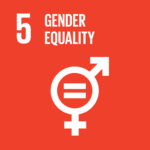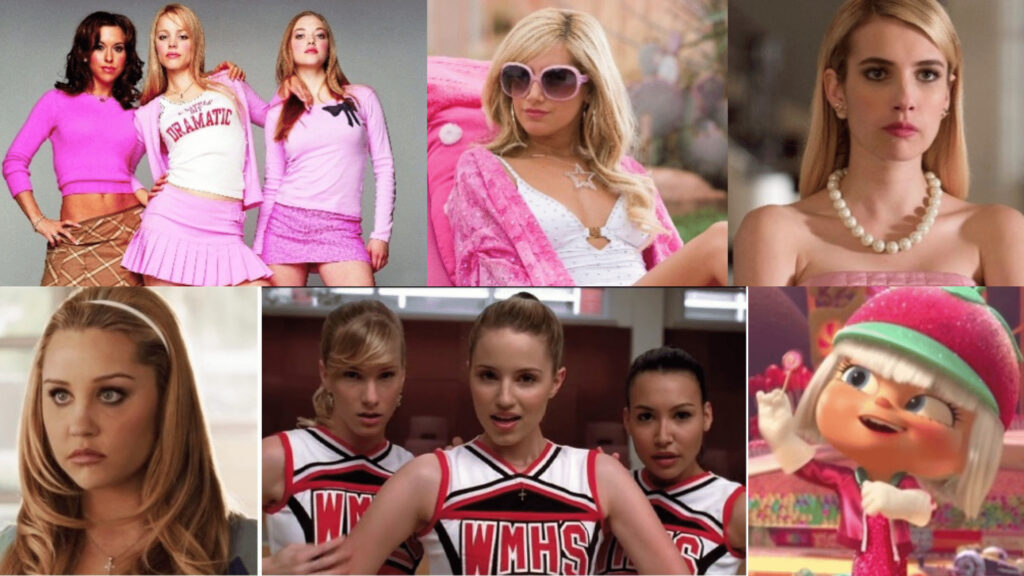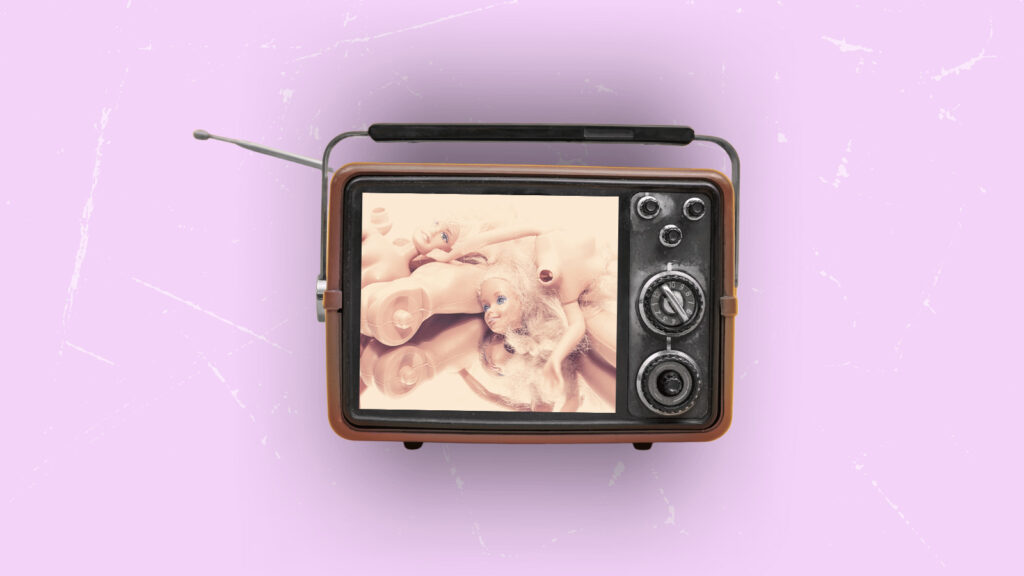What does femininity in film say about women equality efforts ?
How many times have you seen a strong female character be depicted in a typically feminine way? Sure, there are strong female characters like Ripley from Alien, Beatrix from Kill Bill, and Annabeth from Percy Jackson (the movies, sorry y’all), whose strengths are depicted from their typically masculine traits. You have your Mulan’s and Hermiones, who tend to struggle to perform traditional femininity but aren’t strictly super male either, and whose strengths come from their wits and knowledge. But then there is the great and powerful Elle Woods from Legally Blonde. She’s pretty, she’s into feminine things, and she’s oh so very pink. How often do you see a solid and respected female lead who is just so unabashedly feminine?
RELEVANT SUSTAINABLE GOALS

WRITING EXPECTATIONS
From writers to high-standing political statistics, male figures create a narrative they see fit for women, overuse it, demand it, and then criticize women for being that way. You see it in everyday lives, where women are forced to rely on men by men and are mocked for it. That’s why in commercials for food or shopping, women are depicted as those who enjoy spending their boyfriend’s/husband’s/etc. Money and frequently demand it. When in real life, many wives and mothers have to rely on their male counterpart’s income to survive and create a comfortable life for their children, especially in Asian countries. Why should a woman be shunned for wanting to live a comfortable life for herself or her children if she wishes?
In entertainment media, women have obvious tropes that they fall into. The following are two of the most popular (and most disturbing) ones:
THE HYPER-FEMININE MEAN GIRL
Sharpay Evans, Regina George, and every Plastics copycat. Hyper feminine characters in film and other entertainment media are almost always depicted as the antagonist in our hero’s story. When it’s a male character, he is often the comic relief, and not someone took seriously. When it’s a female character, then she is vile, evil, and vain. These characters are often synonymous with catty, egotistical, narcissistic, high-maintenance beings and are, in some cases, very much in tune with her sexuality and appeal. It shows that women aren’t allowed to be pretty, aren’t allowed to want to be cute, and have feminine interests (i.e., makeup and skincare) without also being the wrong person.
The hyper-feminine mean girl and femme fatales are depicted as female characters who utilise their beauty and charm to manipulate those around them. Although it can be rather empowering for some to see the tropes reversed, these girl bosses almost always end up defeated or stop being that way themselves. When they do stop being mean, they stop being “hyper-feminine.”
Stemming from patriarchal expectations of women, this trope shuns women who enjoy traditionally feminine things. They depict people with these characteristics as corrupt and high-maintenance. It is as if women aren’t allowed to want to look attractive but, at the same time, must be able to fit into the beauty standards with no effort. If they’re hyper-feminine but not mean, however, she is—more often than not—utterly brainless, implying that a woman cannot be pretty, friendly, and intelligent all at once.
the mean girl trope, bimboism and the demonization of ultra femininity: a thread https://t.co/Z5XqTU8LWd
— ali (@gr4vyrd) July 5, 2021
THE SEXY BUT CLUELESS
A woman or female humanoid character with a conventionally attractive physique is thrust into a narrative that she isn’t familiar with and often accompanies a male protagonist. This translates into her being clueless about romantic advances, “accidentally sexualizing herself,” or unintentionally flirting with the said male protagonist. Furthermore, it gives the male protagonist, writers, and the audience the “permission” to sexualize the character as she willingly performs it. How many times have you watched a show (may or may not be anime) and a clueless or stoic female character nonchalantly changes her clothes in front of him?
In addition to sexualizing the character, it writes the character as helpless due to her lack of knowledge of the environment and situation, forcing her to rely on the male character. As such, this trope sexualises childlike behaviors such as the whimsical, clueless or curious nature of children, kid-talk, and a generally inexperienced child while depending entirely on their more mature / experienced male counterpart. This trope is also commonly paired with a conventionally unattractive male or male humanoid character who is down on his luck and/or someone society would usually label a “loser” or “a nobody.” They also tend to overlap with the manic-pixie dream-girl trope, but the latter would require the women in these films to be two-dimensional, lacking in depth and growth, existing solely for the male protagonist’s character development.
Pop Culture Detective’s video Born Sexy Yesterday described this trope as quoted,
The mind of a child manifest in a mature female body
One that the team later elaborated as “fetishising the stark power imbalance between the two main protagonists.” It promotes the notion that children and women relying solely on their partners are attractive in mature relationships.

IT’S JUST FICTION
Though fiction does not necessarily mirror reality, it can affect real life depending on how it is perceived by the masses. For example, look no further than the infamous tale of Birth of a Nation (1915), whose release revived the Ku Klux Klan and has undoubtedly distorted many people’s views on Black people to this day. In the case of the hyper-feminine mean girl and the manic pixie trope, they romanticise a relationship in which femininity’s existence is solely for or because of masculinity. Mean girls are shallow in the sense that they’re evil and are an entity for our male or masculine female character to defeat. While the sexy-clueless is superficial because their entire existence relies on their more experienced men, the manic pixie promotes the idea that a woman exists to “fix” men and encourage growth in them.
There aren’t enough kind and compassionate tropes in which female characters are depicted without their nature relying on their male counterpart. Although media has a history of being run by men, many of the tropes still corrupt our current environment for entertainment. As a result, much of our understanding of women and femininity are skewed. Thankfully, many animated shows have started to tackle shows and movies featuring strong female leads of diverse backgrounds and personalities.
It’s hard—no, impossible—to miss the pattern here: femininity is terrible, and only by feeding into the Toxic-Masculinity-Ego-Machine can the expression of it be accepted. So just remember, the next time you feel like a woman isn’t behaving as you think they should or if femininity isn’t expressed in the way they should, take a minute to reconsider: are they really wrong, or have your expectations of femininity been overly saturated with misogynistic media?



